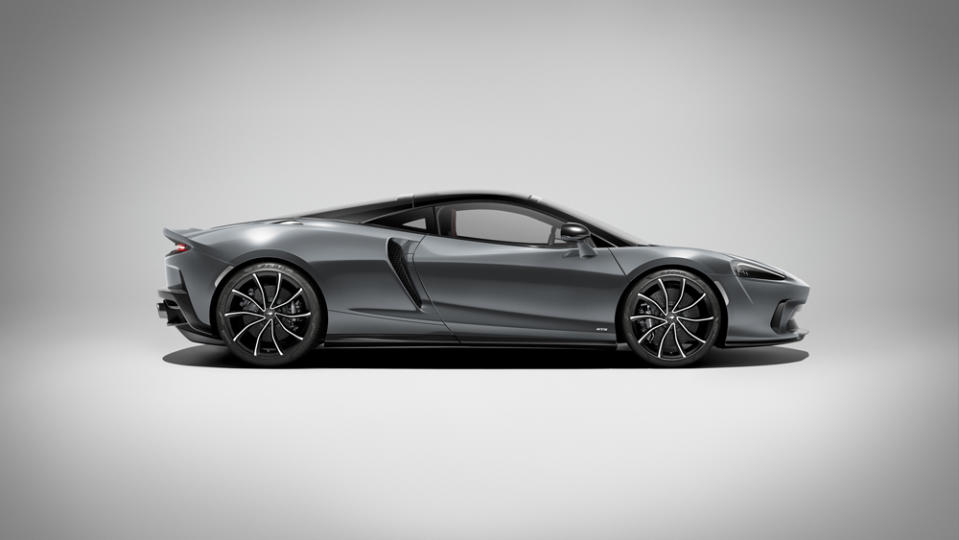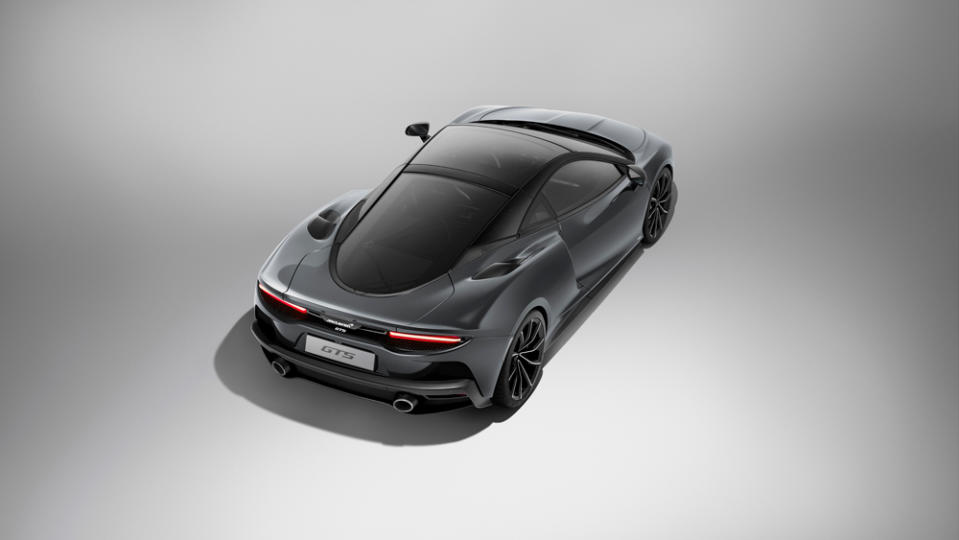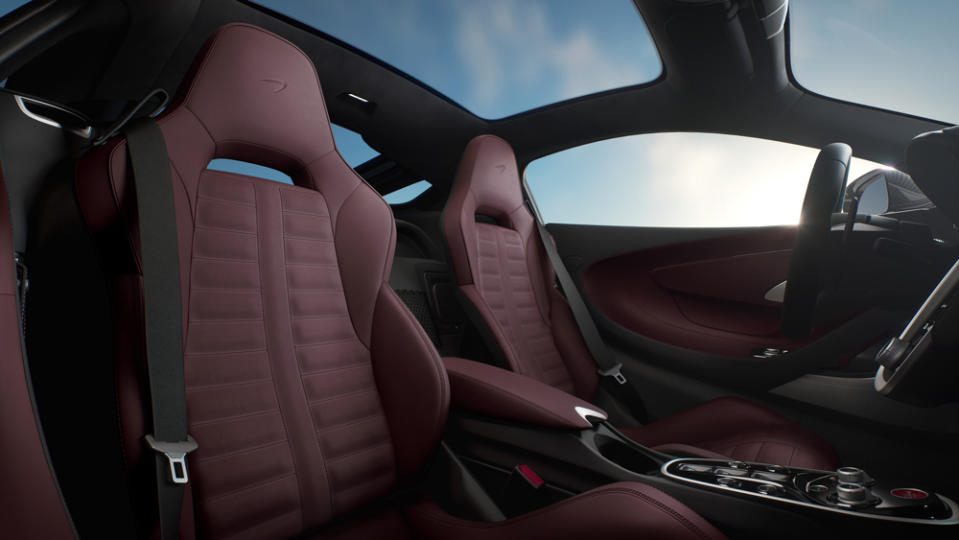McLaren Unveils Its New GTS. Here’s Everything We Know.

It’s been an important year for McLaren as it commemorates its 60th anniversary in motorsport, a celebration that is carrying over to McLaren Automotive and its road-going supercar lineup. In April, the British marque unveiled the 750S, a replacement for its popular 720S model—second-place finisher in Robb Report’s 2018 Car of the Year contest. Now McLaren has debuted the GTS, a touched-up version of its GT model that premiered in 2019.
The GT was, for all intents and purposes, developed to be the automaker’s closest model to a daily driver while still imbued with the same stylistic and performance characteristics that one would expect from the brand that bears legendary racer Bruce McLaren’s name. Yet the original GT seemed to fall a bit short of its mission statement, at least according to the consensus of Robb Report’s 2021 Car of the Year judges, who placed it ninth out of an 11-car field. And yet our opinion at the time was: “What’s certain is that while the current GT may not measure up to its smaller siblings, room for improvement has been built right in.” It seems that’s where the GTS fits.
More from Robb Report
This Rare Mercedes-McLaren Roadster Is Heading to Auction Next Month
An Ultra-Rare 1998 Lamborghini Roadster Is Heading to Auction
Lamborghini's Racing Division Just Unveiled Its First Street-Legal Track Car

“The new McLaren GTS offers an unmatched blend of McLaren driving dynamics and performance, with refinement and practicality,” mentioned Michael Leiters, CEO of McLaren Automotive, in the official statement, adding that, along with “a true supercar driving experience . . . when you want to relax on a longer journey with luggage for a weekend away, the GTS is an ideal companion.”
On paper, which is what we really have to go on at the moment, the rear-wheel-drive GTS—with a roof panel comprising recycled carbon fiber—seems to be an amalgam of moderate updates, mostly aesthetic, without any major revisions. The foundation is still the same carbon-fiber Monocell II-T monocoque chassis as the GT, which they both share with the Speedtail from McLaren’s Ultimate series. Cargo space, presenting a relative storage facility compared to that of the rest of the line, is also unchanged, measuring in at 20.1 cubic feet. What has been modestly enhanced is output from the 4.0-liter twin-turbo V-8, which now delivers an additional 14 hp for a total of 626 hp, but with the same 465 ft lbs of torque.

The 3,351-pound GTS does weigh 22 pounds less than the GT, and with a seven-speed seamless-shift gearbox (SSG) as part its power train, it can cover zero to 60 mph in 3.1 seconds and top out at 203 mph, but those are metrics that also remain unchanged from its predecessor. To be fair, the car—with Comfort, Sport, and Track drive modes—does accelerate from zero to 124 mph faster than the GT, clocking in at 8.9 seconds versus the latter’s 9.0 seconds (hey, that’s still faster). And wearing 380 mm and 390 mm carbon-ceramic brake discs at the front and rear, respectively (with aluminum six-piston calipers in front and four-piston calipers behind), the GTS can scrub speed from 124 mph to zero in 417 feet (that’s 4 feet more than required by the McLaren Artura from that speed). Perhaps the most impressive improvement, at least from the performance front, is the vehicle’s nose-lift feature. It gives the same 5.1 inches of ground clearance as that of the GT, but is claimed to operate “in half the time.”

As for the stylistic changes, these have been done to make the car appear more “aggressive,” according to the marque. Translating the organic design language that distinguishes McLaren, the GTS still looks to be shaped by the very air that it carves through, but differentiates itself from the GT with a new front bumper and expanded intakes at the front, as well as “taller air scoops” on the back fender. New paint selections include Mantis Green, Ice White, and Tanzanite Blue, as well as one that’s unique to the model, Lava Grey. As for the four corners, the GTS will come standard with 10-twin-spoke forged alloy wheels, but a lighter 10-spoke Turbine design is also available. All will be dressed in custom Pirelli P Zero tires.

The interior showcases a 10.25-inch digital dash complemented by a 7-inch central touchscreen, and a 12-speaker Bowers & Wilkins sound system can be optioned. The cockpit’s trim packages now include Performance and TechLux selections that are geared toward what McLaren describes as “sporty, sharp, and technical,” or “classical elegance,” respectively.
As the GTS begins deliveries in 2024, it will be interesting to see how it fares against its own sibling, the Artura. After all, McLaren’s first production-series hybrid and first of its road cars to carry a V-6, the Artura is a contender in Robb Report’s 2024 Car of the Year, results of which will be featured in the February issue.
Click here for more photos of the McLaren GTS.
Best of Robb Report
Sign up for Robb Report's Newsletter. For the latest news, follow us on Facebook, Twitter, and Instagram.



